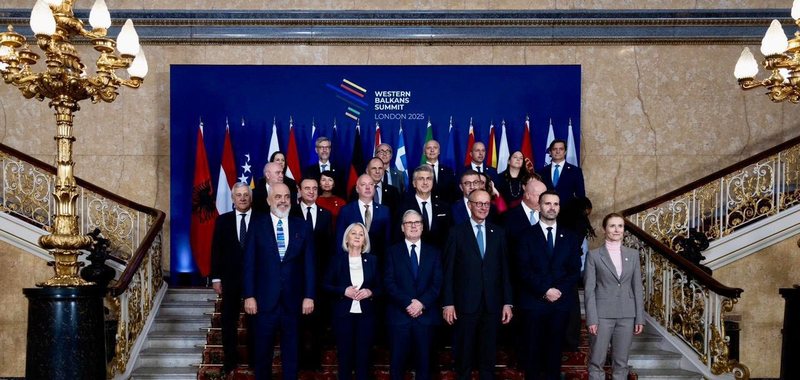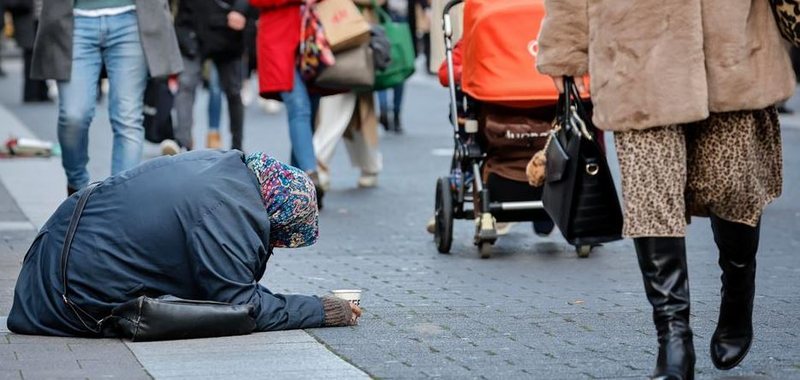Greece "studying" the housing crisis - The government's two strategies to curb the housing shortage

The Greek government has announced the use of two methods to address the country’s housing crisis: social housing and social rental. According to the Ministry of Social Cohesion and Family, these two measures are “complex tools” that require cooperation between many actors. In particular, social housing projects will require the mobilization of public assets that have long been neglected.
In collaboration with the Ministry of Defense, the new housing initiatives will utilize unused military sites. Three campuses in Athens, Thessaloniki, and Patras have already been selected. The first phase of the program aims to develop around 1,500 to 1,700 affordable social housing units for middle-income families.
The government's second measure, social rent, involves a partnership between the public and private sectors. The aim is to renovate existing buildings that are no longer in use, rather than building new units on vacant land. A private investor will undertake the renovation of buildings owned by public bodies and will return at least 30% of the new housing it builds to the state.
However, market players point out that these measures, although already implemented in several European countries, will be difficult to implement in Greece. First, many public properties have complex ownership statuses that can take months or even years to resolve. Also, approval and licensing procedures for new housing developments remain extremely lengthy.
According to a new study by Greek real estate platform Prosperty, the market in Greece faces supply and demand problems, with large mismatches that make properties uninhabitable for long periods. On the supply side, most of the available buildings are old, often built in the 1960s and 1970s, and only one in ten has been renovated. There are currently around 131,000 properties for sale and 45,000 for rent. However, many of them remain uninhabitable for periods of six months to two years, mainly due to the mismatch between price and quality.
The average asking price for properties reaches 300,000 euros, or about 2,500 euros per square meter. Newly built buildings mainly attract high-income groups, with prices often exceeding 6,000 euros per square meter for luxury options.

EU and US unite against Russia - Impose new sanctions on Russian oil and gas
The European Union and the United States have imposed new sanctions on Russia in an attempt to force the Kremlin to accept an immediate ceasefire in Ukraine.......

Berlin Process Summit in London/ Rama: Albania, active part of discussions on regional cooperation
Prime Minister Edi Rama participated in the plenary session of the Berlin Process Summit in London, which was chaired by the Prime Minister of the United......

In support of young entrepreneurs - EBRD offers 4.5 million euros to help businesses in Kosovo
The European Bank for Reconstruction and Development (EBRD) is providing a €4.5 million loan to the Bank for Business (BpB) in Kosovo, with the aim of......

Financial support for excellent students - Applications open on e-Albania, deadline until December 20
Applications for financial support are officially open for the best students who have begun their studies in the first program at public......

Restoration of Borsh Castle/Gonzha: Interventions will begin soon, from the renovation of the mosque to the lighting!
The Minister of Tourism, Culture and Sports, Blendi Gonxhja, announced today that interventions will soon be made at the Borsh Castle, to give this monument......

Flying car "touches" the skies of Dubai - Chinese company introduces new air transport model
A flying car developed by Chinese company ARIDGE has been unveiled for the first time in Dubai, marking a bold step towards a new era of transportation. The......

Housing prices in Skopje are "flying" - The limit of 3 thousand euros per square meter is "broken"
A buyer paid 3,077 euros per square meter for a 91 m² apartment in the Skopje Center neighborhood, exceeding the 3,000 euro per square meter mark for the......

Poverty "feeds" climate crises - UN: Around 900 million people face the risks of extreme weather
An estimated 900 million people worldwide are exposed to the increasingly severe impacts of the climate crisis, such as extreme heat, floods, droughts and......


















